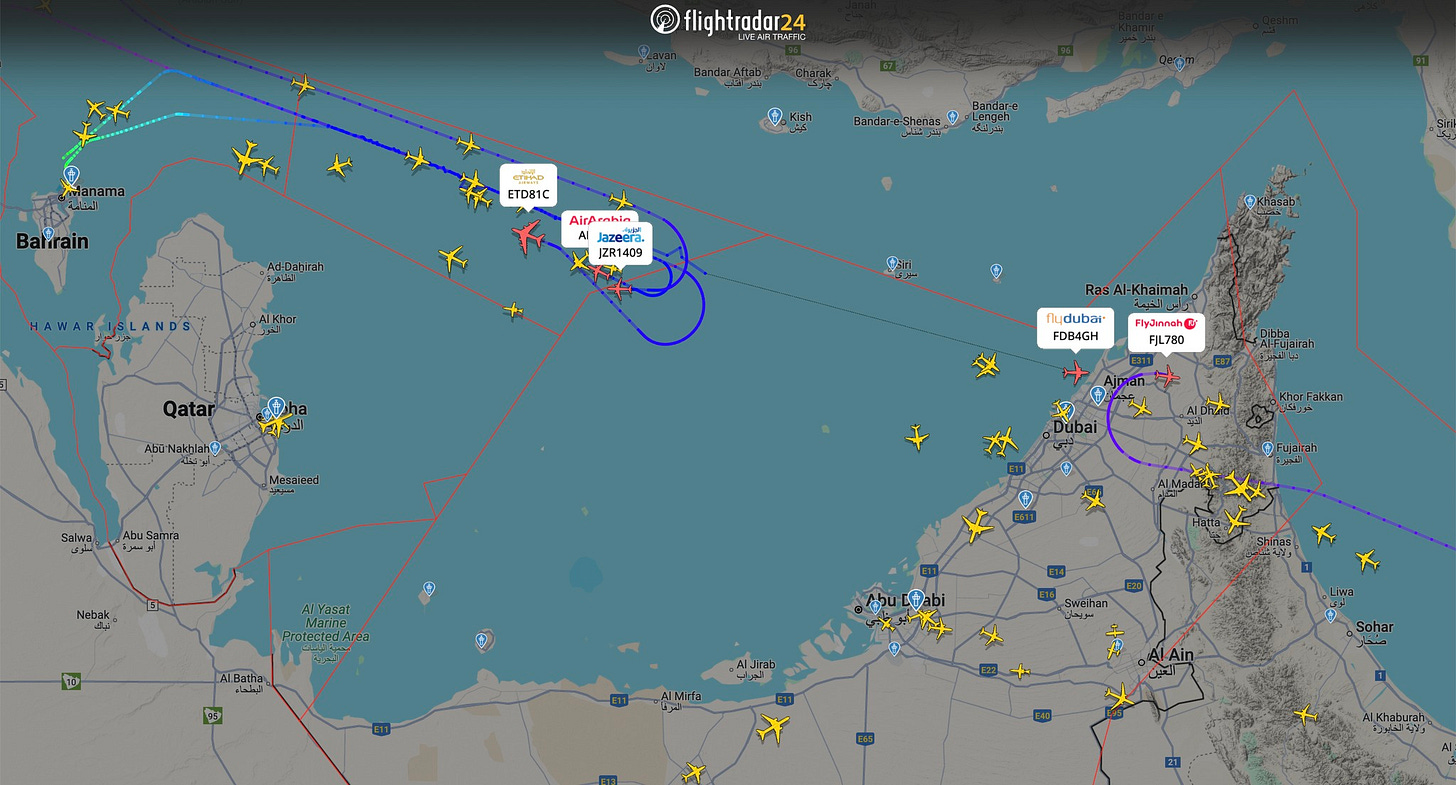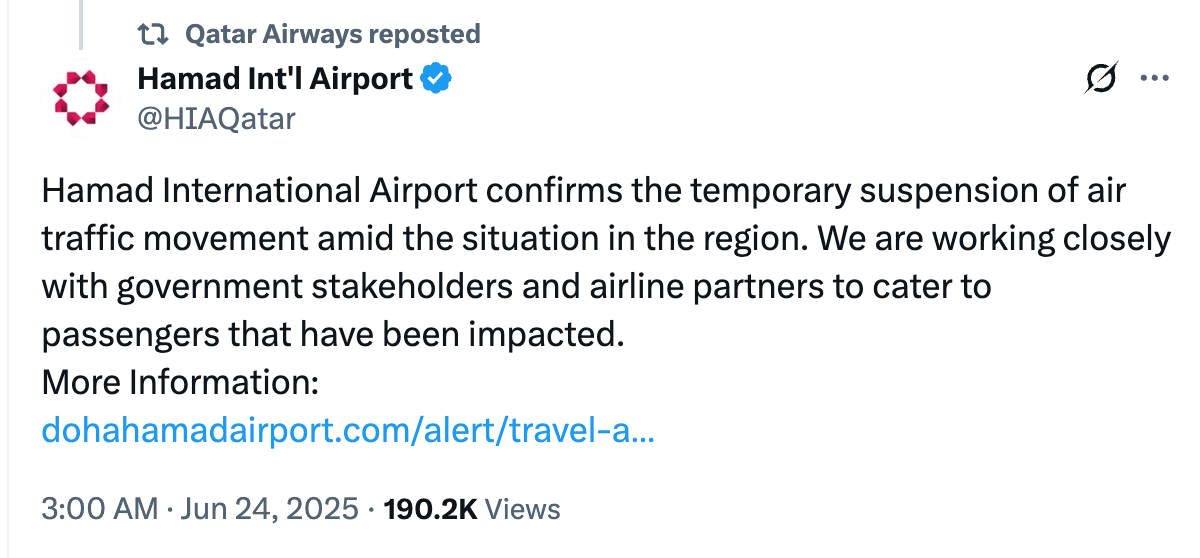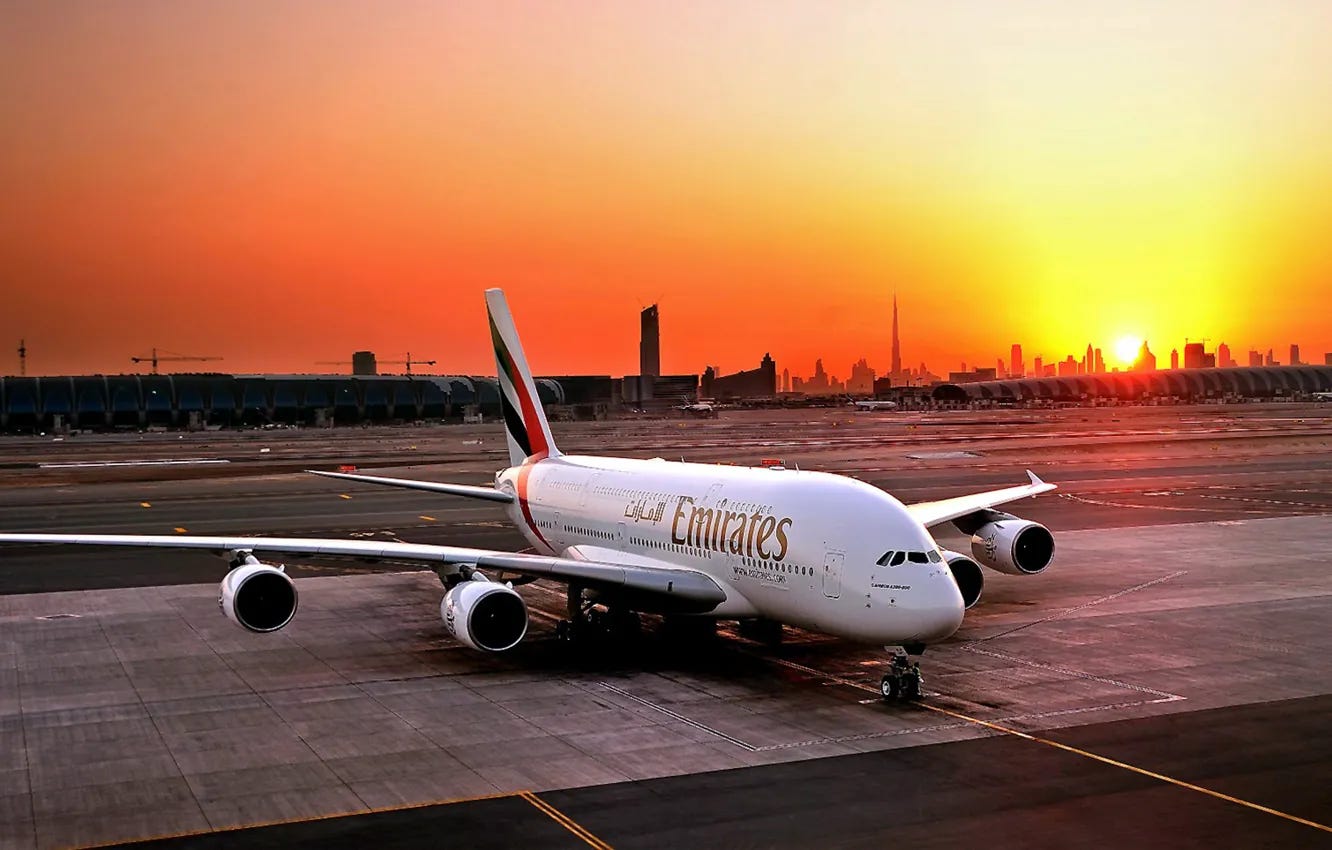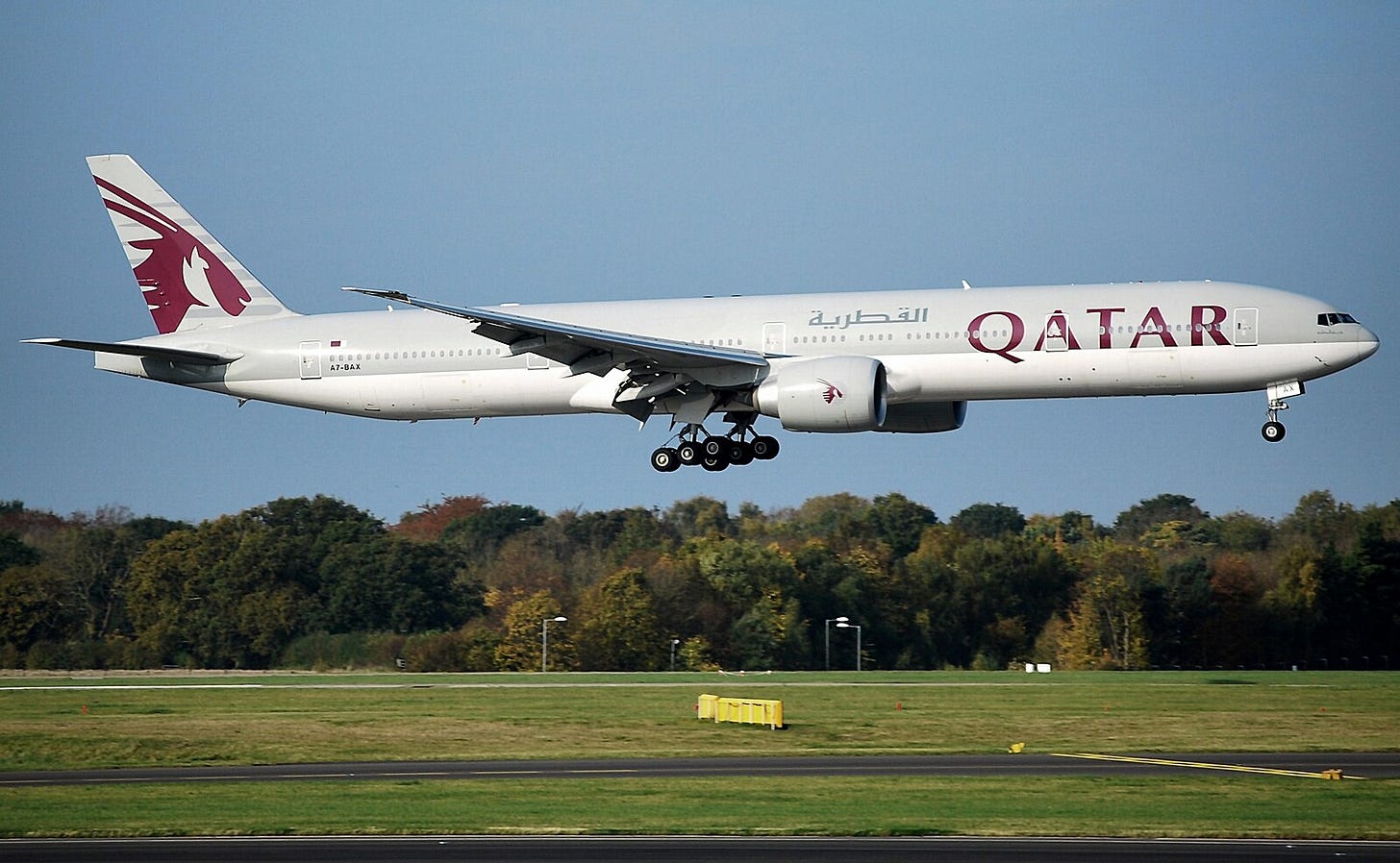You know it's serious when...
Emirates, Etihad and Qatar stop flying
It was a hot summer’s day in, gosh, 1995 when I ran, slipped and landed awkwardly on my arm. I was never famous for my high pain threshold, so while my parents were duly sympathetic, they remained preternaturally sceptical. The below transcript has been lightly edited to remove my inconsolable wailing for clarity:
“Is it your arm?”
“Yes!”
“Does it hurt really bad?”
“Yes!”
“Would you like a KitKat?”
“No!”
Declining a chocolate bar? My mother swiftly concluded this was indeed serious and drove me to the hospital, where an x-ray confirmed a fracture. To this day, I maintain at all times a safe distance from backyard water slides.
This is actually a newsletter about war
On 13 June, Israel launched air strikes on Iranian nuclear and military targets, while Iran responded by firing barrages of drones and ballistic missiles at Israeli cities. (Only in the Middle East can a war break out in the middle of a war.) Unsurprisingly, airspace was closed to civil aviation in both countries as well as Iraq, Syria and parts of Jordan.
Then, on 18 June, American Airlines suspended its Philadelphia to Doha route — the carrier’s only flight to the region, citing safety concerns. Scores of other Western carriers followed suit, both before and after the US strike on Iranian nuclear facilities on 22 June. Did this mean that Iranian retaliation against American assets in the region was imminent? To know that, you needed to watch the behaviour of the big three Middle Eastern (ME3) carriers.
The air corridors above the Gulf — which ferry nearly 500,000 passengers each day between Europe, Asia and Australia — remained open. For Emirates, Etihad Airways and Qatar Airways, it was business as usual. That was, until 23 June, when Qatar closed its airspace to commercial operators, “in order to ensure the safety of citizens, residents, and visitors.” The United Arab Emirates did the same. As with the KitKat, it signalled something was not right.
It was only then that it became clear Iran was set to strike against the US. Soon after, and in a highly telegraphed move, the Islamic Republic lobbed a few missiles at the American Al Udeid Air Base in Qatar, which were intercepted, and no one was injured. These days, this is what passes for de-escalation.
That the ME3 were the last to hold out is partly for logistical reasons. Virtually all their flights either take off or land in Dubai, Abu Dhabi or Doha. These are their home airports, after all. If airspace over Paris were threatened, Air France — with around 335 daily departures from Charles de Gaulle — would make different decisions to, say, Aeromexico, which operates one to two flights there each day.
But it is important to recognise why the ME3 fly. I do not mean to suggest that Emirates, Etihad and Qatar have lower safety standards than other airlines. They do not. But they fly for different reasons. British Airways — disappearing water bottles and all — is fundamentally run as a business. The UK government certainly maintains an interest in its solvency, given that the airline provides critical connectivity to the UK via its London Heathrow hub. But this is nothing compared with what the ME3 do for theirs.
To be fair, Emirates is run as a business. In fact, the Emirates Group became the most profitable aviation group globally in the 2024-25 reporting period, with pre-tax profits of $6.2bn. But it does so much more for Dubai. There is the connectivity, of course — Emirates flies to more than 130 destinations in 85 countries.
But the airline has also helped Dubai become a global tourist destination and business hub, less a Middle Eastern Emirate than a golden city-state where everyone is welcome and everything available for a price. By continuing to fly, it sends the signal that, sure, some parts of the Middle East may be unstable, but your holiday in Dubai or investments in Abu Dhabi are perfectly safe.
Qatar, meanwhile, has similar motivations. Its airline was among the few that kept flying during the height of the Covid-19 pandemic, transporting vital cargo and undertaking repatriation flights. If you were on one such flight, you may think of Qatar not as a tiny nation in lodged in a dangerous part of the world with a contested human rights record, but as the people who reunited you with your family when no one else would.
I guess the point I’m trying to land is this: Western airlines cancel flights when their insurers fear legal liability. Gulf carriers do so when their governments are braced for impact.







